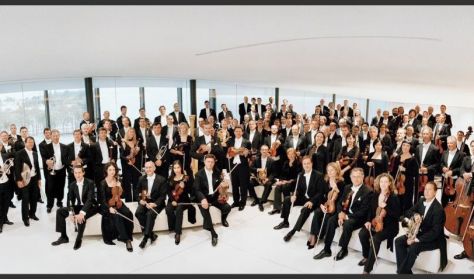
Bécsi Szimfonikusok
Mahler: III. (d-moll) szimfónia

Mahler: III. (d-moll) szimfónia
Ön egy múltbeli eseményre keresett. Kérjük, válogasson aktuális kínálatunkból a Jegy.hu keresőjében!
Utolsó előadás dátuma: 2021. október 2. szombat, 19:30
Bécsi Szimfonikusok
Vezényel: Andrés Orozco-Estrada
Közreműködők:
mezzoszoprán: Sarah Connolly
Nemzeti Énekkar Nőikara (karigazgató: Somos Csaba)
Kodály Zoltán Magyar Kórusiskola Gyermekkara (karigazgató: Sapszon Ferenc, Sapszon Borbála)
Beethoven IX. szimfóniájáig a műfaj négy igényes kidolgozású tételt jelentett - ezek szilárd formai keretek között fejeztek ki lelkiállapotokat, érzelmeket. A Kilencediktől azonban a szimfóniaszerzők felfedezték a világábrázolás lehetőségét. Világábrázolás Mahler III. szimfóniája is, a műfaj egyik legjelentősebb, terjedelmében leghosszabb darabja, melyet ezúttal Európa egyik legkiválóbb zenekara élén nemzetközi hírű karmester vezényel.
Mahler 1896-ban fejezte be III. szimfóniáját, a Des Knaben Wunderhorn című népköltésgyűjtemény által inspirált „Wunderhorn-szimfóniák” (II., III., IV.) hármasának középső tagját. Hatalmas, hattételes művet alkotott, melynek pusztán első tétele is annyi ideig tart, mint egy teljes klasszikus szimfónia. Az előadás nagy zenekart igényel több különleges hangszerrel, a vokális apparátusban alt szólista, női kar és fiúkórus szerepel. Mahler utóbb mellőzött programja szerint a tételek témája: 1. Pán ébredése, a Nyár bevonulása; 2. Amit a mező virágai mesélnek nekem; 3. Amit az erdő állatai mesélnek nekem; 4. Amit az ember mesél nekem; 5. Amit az angyalok mesélnek nekem; 6. Amit a szeretet mesél nekem. A 4. tétel Nietzsche Zarathustrájából zenésít meg egy részletet. A koncert szólistája, a világhírű brit mezzoszoprán, Sarah Connolly sokoldalú énekes, repertoárja Händeltől a kortárs zenéig terjed. Az 1900-ban alapított Bécsi Szimfonikusokat olyan muzsikusok vezették, mint Furtwängler, Karajan, Sawallisch, Giulini. Karmesterük, a kolumbiai Andrés Orozco-Estrada egy beugrás nyomán vált ismertté Ausztriában, amely új hazája lett - de Németországban, Nagy-Britanniában és az Amerikai Egyesült Államokban is nagy sikereket arat.
Rendező: Müpa
Szállj fel a cirkusz nagy körhintájára, ahol az álmok életre kelnek. Világszámok és fiatal magyar tehetségek várnak Ringlispíl című előadáson.
A Budapest Nemzetközi Cirkuszfesztivál a világ egyik legnagyobb presztízsű cirkuszi versenye.
színes, magyar thriller, 124 perc (16) R.: Holtai Gábor SZ.: Gryllus Dorka, Molnár Áron, Lovas Rozi
Hófehérke és a gonosz mostoha története, Kocsák Tibor fülbemászó zenéjére, ifj. Harangozó Gyula ötletekből kifogyhatatlan koreográfiájával, Velich Rita gyönyörű jelmezeivel,…
Frank Wildhorn és Jack Murphy világhírű musicalje Rudolf koronaherceg tragikus sorsú történetét dolgozza fel. Rudolf, I. Ferenc József császár és…
Az elmúlt évek óriási sikerei után 2026. október 16-án a világhírű hegedűművész és karmester, André Rieu ismét visszatér az MVM…
tétel a kosárban
összesen:
Lejárt a vásárlási időkorlát! Kérjük, állítsa össze a kosarát újra!